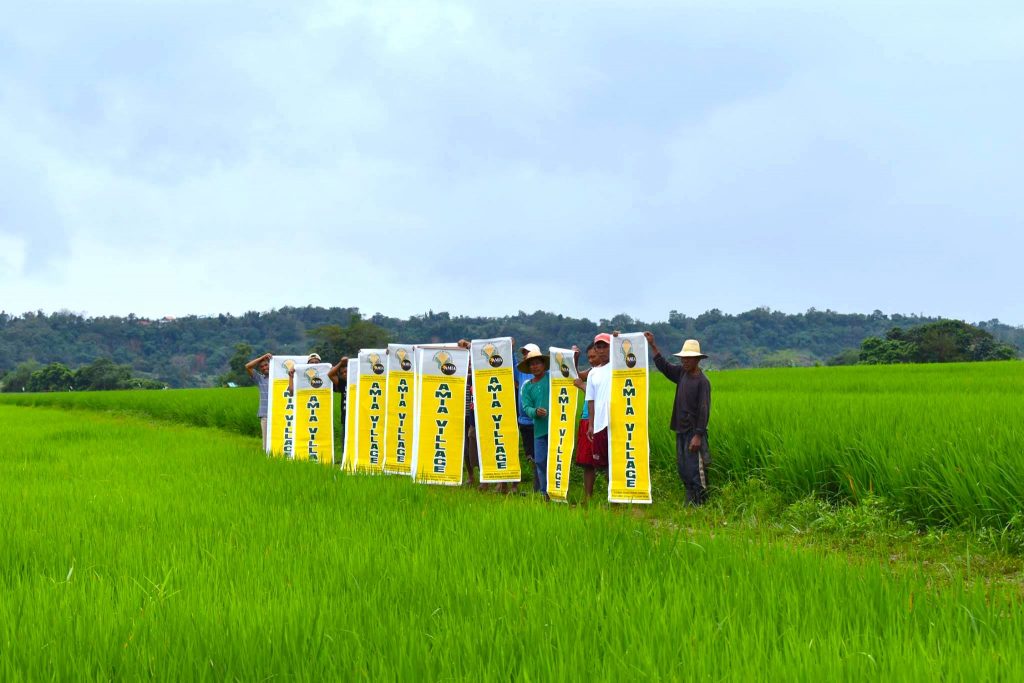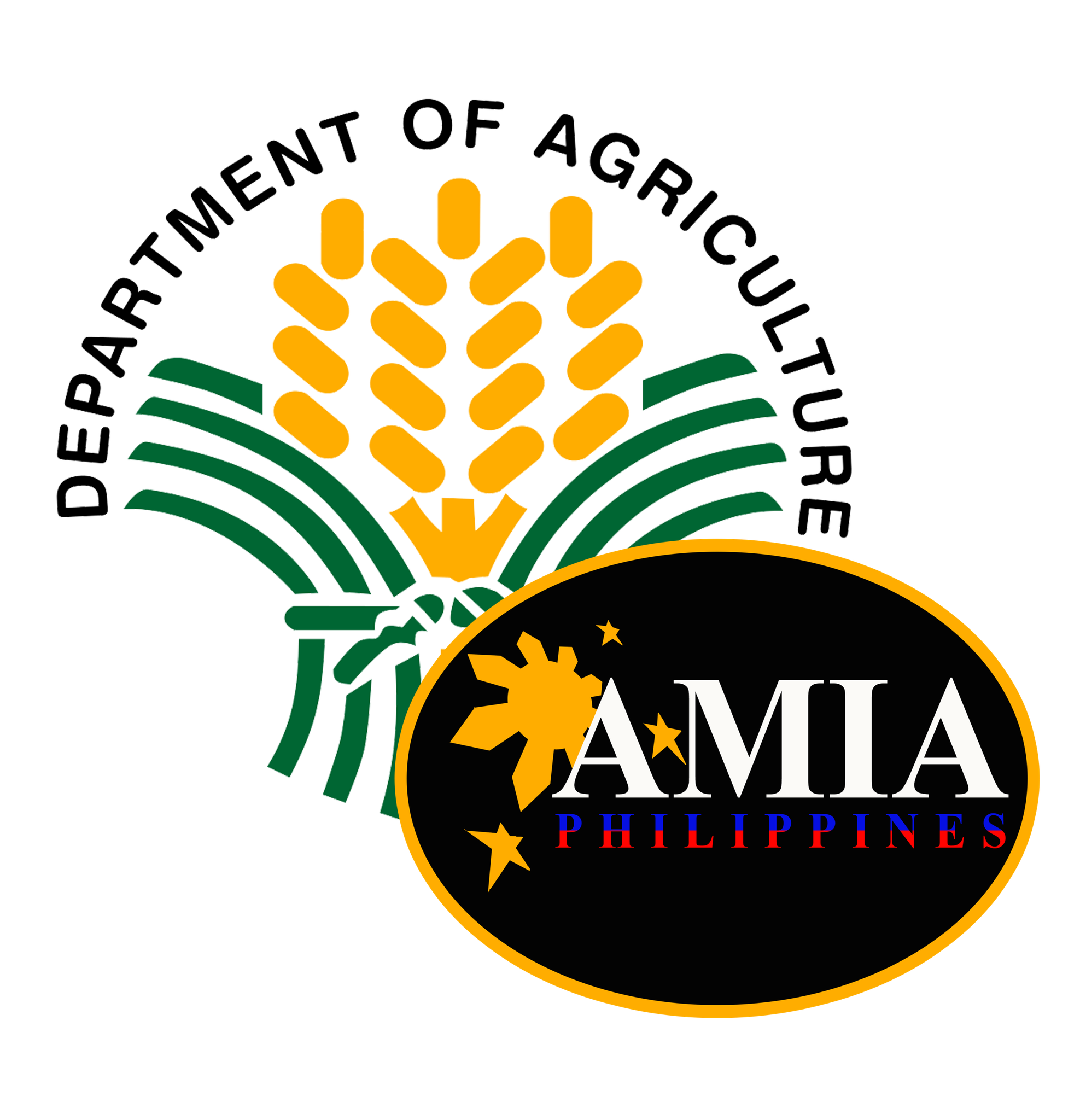
In 2023, the Department of Agriculture’s Climate Resilient Agriculture Office (DA CRAO) remained steadfast in its commitment to promote the mainstreaming of climate change in agri-fishery plans, programs, and projects, while building resilient farming and fishing communities through the implementation of the Adaptation and Mitigation Initiative in Agriculture (AMIA) Program.
The DA CRAO achieved significant milestones in 2023, working on two fronts—providing policy support and extending operational interventions—to enhance climate change resilience in the agri-fishery sector. Here are the highlights of the DA CRAO’s accomplishments for 2023:
Support for Policy Formulation and Resource Generation
The DA CRAO played a pivotal role in steering climate change policy and securing approvals for crucial Green Climate Fund (GCF) projects. Notable projects include the Adapting Philippine Agriculture to Climate Change (APA)—the first GCF project for the Philippine agriculture sector for a grant worth USD 26.3 million—and the Agriculture Sector Readiness for Enhanced Climate
Finance and Implementation of Koronivia Joint Work on Agriculture in Southeast Asia Project. The office, together with PAGASA, and the DA Field Programs Operational Planning Division, Bureau of Soils and Water Management, Project Identification and Evaluation Division, and Project Development Service, among others, worked with the Food and Agriculture Organization for the APA Project. Meanwhile, it collaborated with the ASEAN Climate Resilience Network member states for the GCF Readiness Project.
Moreover, CRAO was at the forefront of ongoing collaborations spanning disaster resilience, climate information services, greenhouse gas inventory, and other climate-related projects, contributing to mutually beneficial partnerships. The office has also driven initiatives to support the implementation of the Nationally Determined Contributions and actively participated in the delivery of commitments for policy-based loan packages, providing inputs for disaster risk management and climate change action programs, aligning the agri sector’s commitment to global climate action.
Integration of Climate Change in Agri-fishery Plans and Programs
Driven by its commitment to increasing farmers’ productivity and income through science-based tools, the DA CRAO under the AMIA Program developed Decision Support Tools (DSTs) for commodity investment planning and prioritization. These DSTs are important for identifying and evaluating climate change vulnerability, empowering planners and decision-makers at both local and national levels to integrate climate change in agri-fishery plans and programs. As of December 2023, a total of 64 Climate Risk Vulnerability Assessment (CRVA) Maps were completed, and the National Color-Coded Agricultural Guide (NCCAG) Map Version 2.0 was updated to maintain the system’s accuracy and reliability. This tool was launched during the celebration of the 16th Annual Global Warming and Climate Change Consciousness Week in November.
Capacitation of DA RFOs on Institutionalization of Climate Information Services
To enhance the provision of climate information services (CIS), DA CRAO, through DA Regional Field Office (RFO) 5 and its partners, developed the Agro-Climatic Advisory Portal (ACAP). ACAP, an online web platform to automate conversion of weather forecasts to easily generate farming and fishing advisories. The roll-out of ACAP in all regions started in 2023 and will continue to progress in 2024 to complement the development of a National CIS hub, a part of the ongoing Asian Development Bank Technical Assistance Output 1.1, Institutionalizing Climate Resilient Agriculture.
Direct Farming Community Assistance through AMIA Village Approach
The DA CRAO, under the AMIA Program and through DA RFOs, directly assisted farming communities to improve adaptive capacity against climate change. The establishment of climate-resilient villages, known as AMIA Villages, empowered farmers to manage climate risks while sustaining their livelihoods. As of December 2023, 181 AMIA Villages have been established, benefiting thousands of vulnerable farmers and fisherfolk in Luzon, Visayas, and Mindanao. These climate resilient communities have made significant positive changes and caused substantial benefits in the lives of some 27,243 farmer-cooperators, to date. When we consider the ripple effect on their families, the total number of beneficiaries extends to approximately 136,215 farmers and their families or individuals within the AMIA farming communities.
Mainstreaming AMIA in DA Plans and Programs
To enhance the implementation of climate change adaptation and mitigation measures in the agri-fishery sector, the DA CRAO has been actively advocating for the mainstreaming of climate change and the AMIA Approach into the plans, programs, and budgets of the DA, in accordance with its policies. The MASAGANA Rice Industry Development Program in 2023 adopted the AMIA Approach, with Php 138 million allocated under the Rice Business Enterprises Program to support AMIA Villages. AMIA’s CRVA framework was also included in key national plans, such as the Philippine Development Plan 2023-2028 and National Agriculture and Fisheries Modernization and Industrialization Plan.
CRAO’s advocacy for mainstreaming climate change extends beyond the DA, as it supported the Department of Agrarian Reform’s (DAR) capacity building for DAR local focal points for the implementation of its climate resilient farm productivity program. There were 3 successive sessions conducted in May to June 2023 for Luzon, Visayas, and Mindanao DAR focal points. These trainings highlighted the AMIA Village Approach, to demonstrate mainstreaming climate change, and the use of AMIA’s DSTs for planning and investment.
For 2024, the DA CRAO, through the AMIA Program, commits to engage in more impactful activities and, together with its partners, continue to be a champion in building a climate-resilient future for the farming and fishing communities across the Philippines. (Story by Joy F. Calvar, DA CRAO)
